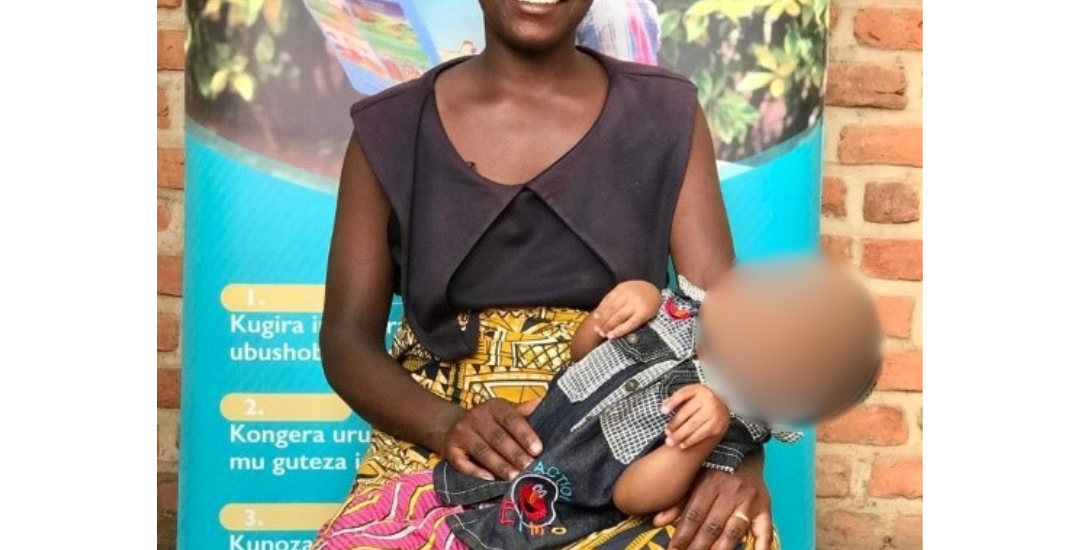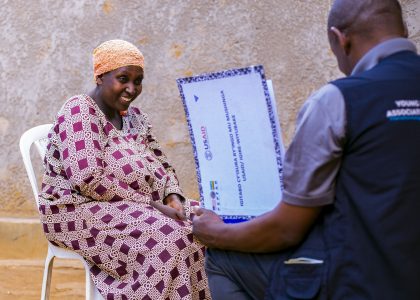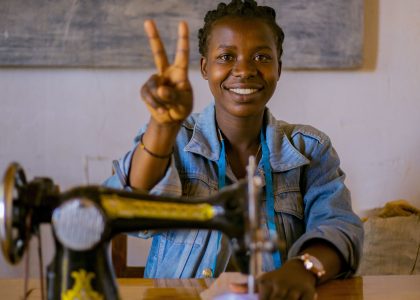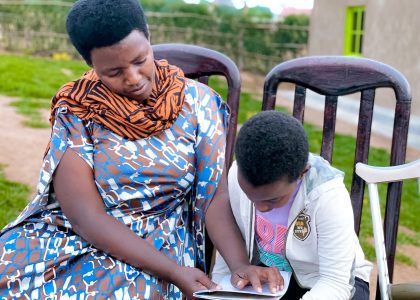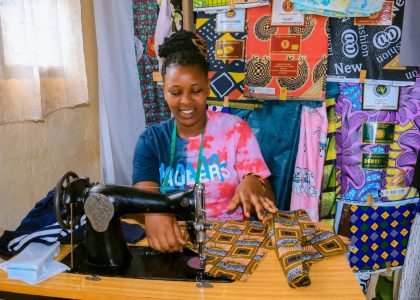30-year-old Francine Uwimana faced immense challenges in raising her son, Blaise Shami Cyubahiro. Blaise was born with a physical disability, and like many other parents in similar situations, it’s not just the physical care that is draining—it’s the emotional toll that comes from society’s judgment.
For most of Blaise’s early life, Francine kept him in the house. The harsh words from people in their community stung deeply. Blaise was often referred to as “debile,” a term that cruelly meant “useless” or “good-for-nothing.” These words made Francine feel ashamed, and she believed that keeping her son hidden from society was the only way to protect him. It wasn’t just the isolation that weighed on her—it was the growing belief that maybe, just maybe, her son was the burden others said he was.
But everything changed when Francine heard about Uburezi Iwacu, a project funded by USAID through World Vision and implemented YWCA Rwanda. The initiative provided educational support for all children, including those with disabilities.
Alexandrine Mukarukundo, a dedicated volunteer came to Francine’s house one day and told her about the program. When Francine hesitated, wondering if her son could be included despite his limitations, Alexandrine reassured her, insisting that Blaise was welcome, just as he was. It was a moment of hope for Francine, and she immediately enrolled her son in the program.
From that day forward, everything changed. Francine, a resident of Nyarugenge District in Kigali City, would carry Blaise to the reading club, bringing a mattress so that he could lie down while the other children sat and learned. While it was hard work, it was also the beginning of something new—a chance for Blaise to be treated like any other child, to be part of something bigger than just their small, isolated world. For the first time, Blaise was able to play with other kids, learn alongside them, and experience a sense of belonging. Francine was overjoyed, seeing her son not held back by his disability, but included in the vibrant life of other children.
However, life wasn’t easy. Blaise’s disability meant he couldn’t sit up or wear diapers, and his sensitive skin was prone to flare-ups. Francine had no choice but to carry him everywhere, and the strain of this constant caregiving left her exhausted. What she longed for most was a simple wheelchair—something that could give Blaise the ability to move independently, rather than always lying down or being carried. A wheelchair would also make it possible for him to sit more comfortably in the classroom, just like the other children, and enjoy playing and learning without feeling physically restricted.
Francine also struggled to provide Blaise with the proper nutrition he needed. Her financial situation made it hard to buy the special foods Blaise required for his health and growth. She had to rely on finding short-term work, but Blaise’s constant need for care meant she couldn’t leave him for long periods. The thought of leaving him alone in his condition was terrifying, especially considering how difficult it was for him to take care of himself. His skin would flare up from sweat if he was left in one position for too long.
But thanks to Uburezi Iwacu, Francine was able to leave the house and find work, knowing that Blaise was in good hands. The project gave her the chance to earn enough to provide for her son, while also helping her to understand the importance of proper nutrition and care for him. It lifted the weight from her shoulders, allowing her to feel a sense of freedom and hope for the first time in years.
Through the support of the Uburezi Iwacu project, Francine learned that her son, despite his disability, had every right to live a full, meaningful life. The project helped her see Blaise for what he truly was : a bright, joyful child who deserved the same opportunities as any other. She no longer felt the need to hide him away or believe the cruel words of the community. The stigma that once had power over her was broken, and Francine knew that Blaise had a future.
Today, Francine feels empowered and hopeful. She no longer lives in fear of judgment or isolation. She knows that Blaise, like all children, has the right to learn, grow, and belong. And she wants other parents in similar situations to know this : their child is not defined by their disability. Every child has a place in this world, and it’s our job to ensure they have the opportunities to thrive.

